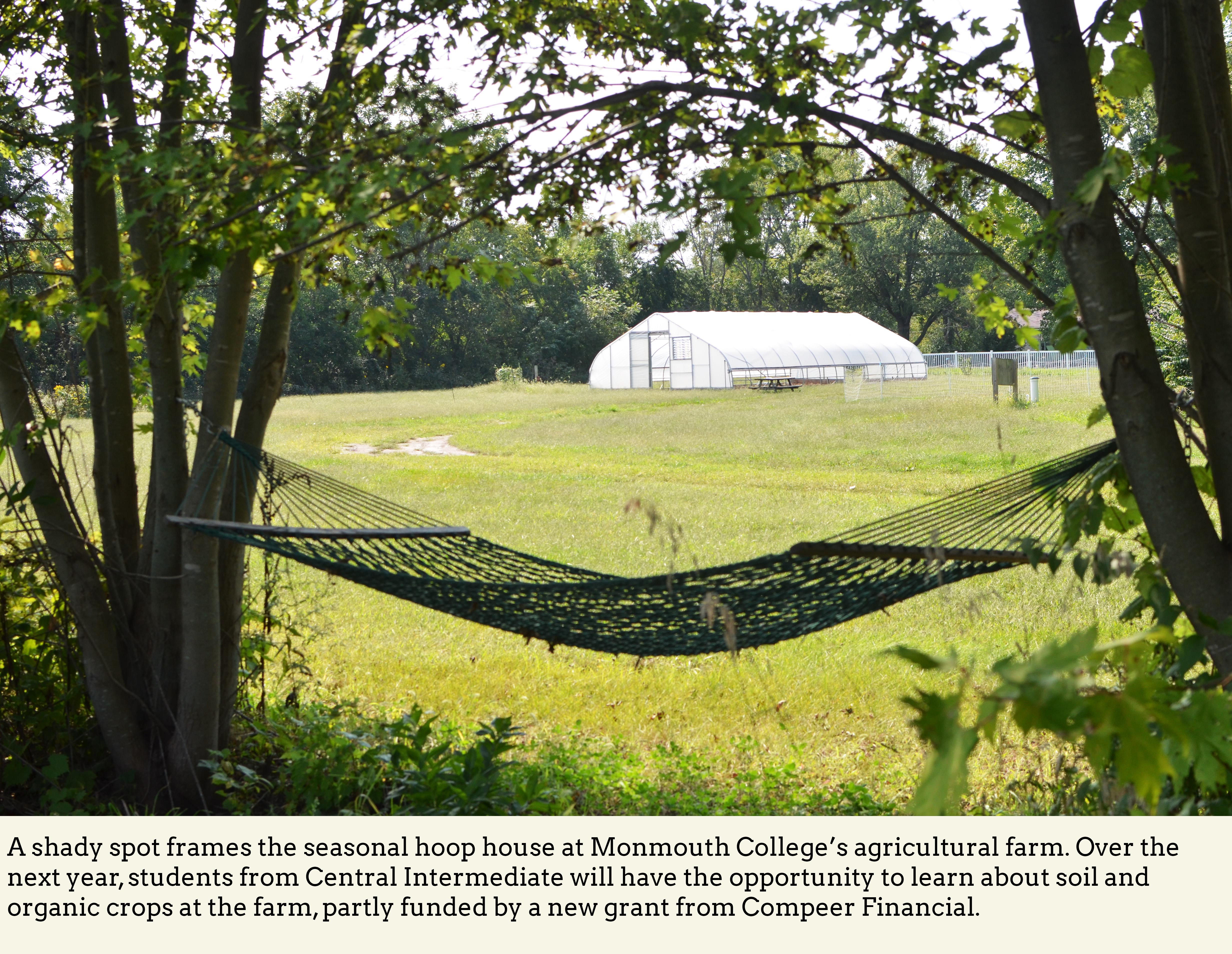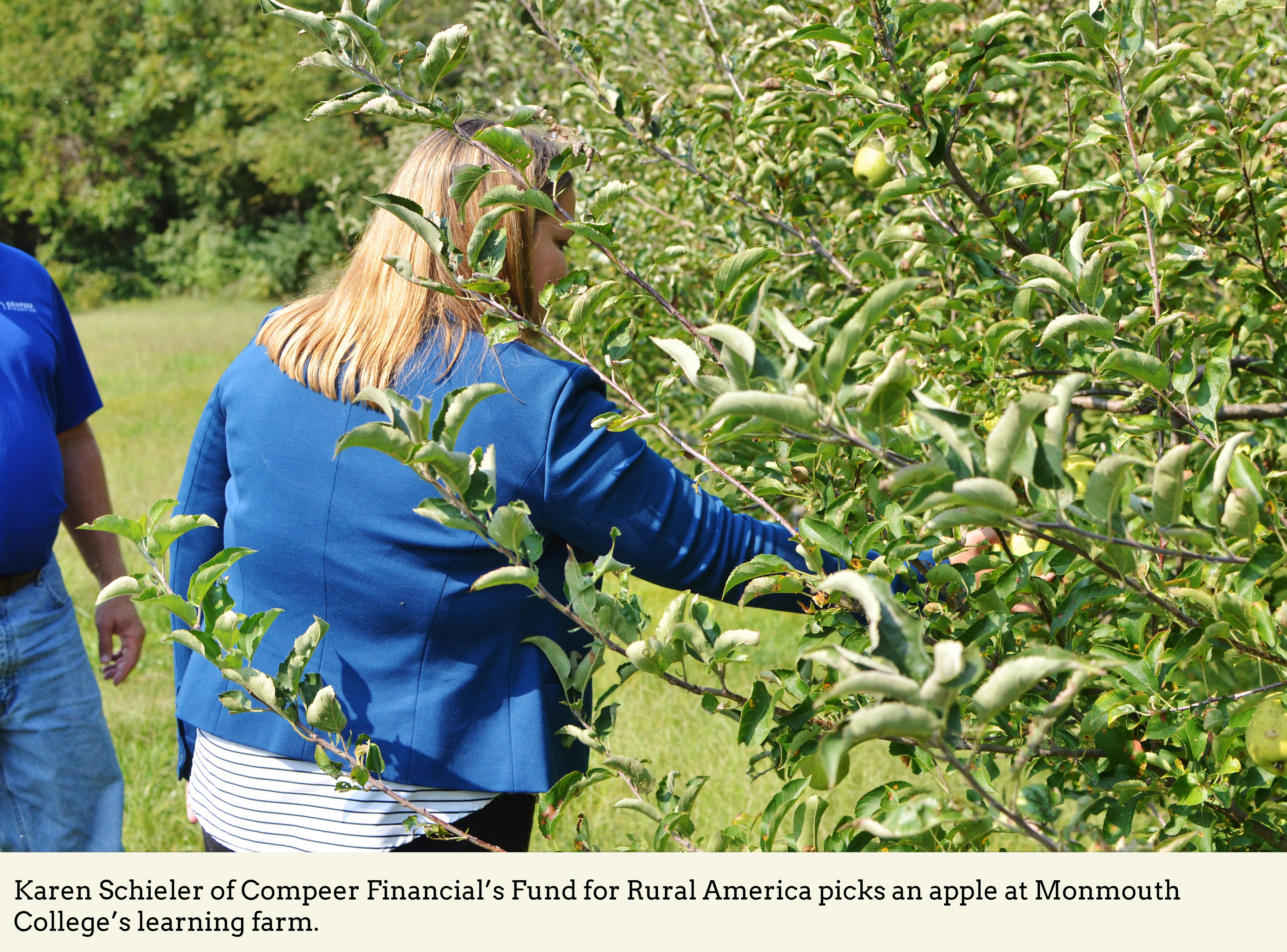Monmouth, IL- The students at Central Intermediate School are excited. Sixth grade has just begun and they’re learning about water; where does it come from? Why does it taste the way it does? Already their teachers are observing them deeply engage with the material, even proposing further projects, like testing the pH levels in bottled versus tap water, or making sure all kids in town have access to clean water.
Their curriculum is part of the Place-Based Education framework, a collaborative effort between Monmouth College, Teton Science School’s Place Network, Rural Schools Collaborative, and Monmouth Roseville school district. The newest venture of this partnership will be supported by a new grant from Compeer Financial’s Fund for Rural America.
The $10,000 grant will go to support a unique opportunity for students at Monmouth Roseville’s Central Intermediate School. Monmouth College will open their learning garden and farm to Central Intermediate students to study soil and alternative methods of food production. The students will then utilize this knowledge to create their very own agricultural plot next to the school. By partnering with local experts and outreaching in the community, the project will be grounded in the specific needs of the school and surrounding neighborhood, making it a meaningful continuation of their place-based education.

This agricultural project is a great encapsulation of the work Rural Schools Collaborative strives to support. Rural schools have the opportunity to support their broader community with locally-focused and hands-on projects. As part of the Place Network Schools program, Central Intermediate contributes a model for other rural schools looking to deepen their impact on the communities they serve.
RSC is grateful to Compeer Financial for their support of place-based rural education in Monmouth, IL. We’re looking forward to seeing the impacts that follow.


